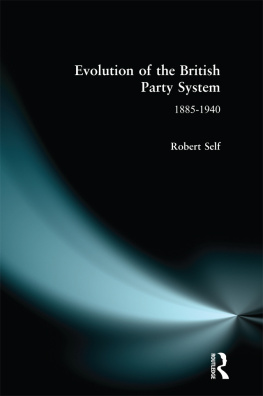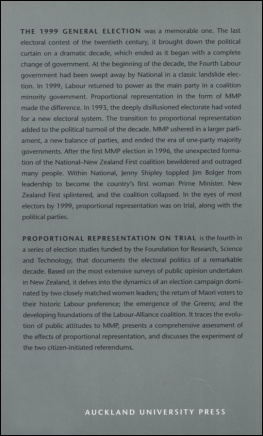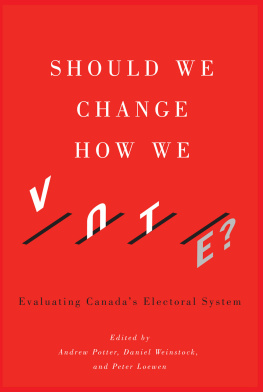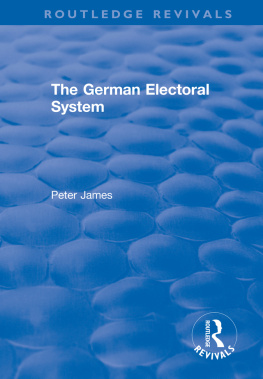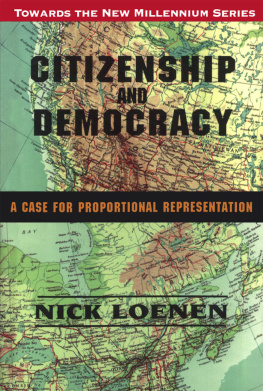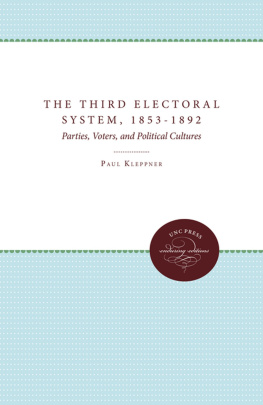First published 1998 by Ashgate Publishing
Reissued 2018 by Routledge
2 Park Square, Milton Park, Abingdon, Oxon, 0X14 4RN
52 Vanderbilt Avenue, New York, NY 10017
Routledge is an imprint of the Taylor & Francis Group, an informa business
Copyright Keith Jackson and Alan McRobie 1998
All rights reserved. No part of this book may be reprinted or reproduced or utilised in any form or by any electronic, mechanical, or other means, now known or hereafter invented, including photocopying and recording, or in any information storage or retrieval system, without permission in writing from the publishers.
Notice:
Product or corporate names may be trademarks or registered trademarks, and are used only for identification and explanation without intent to infringe.
Publishers Note
The publisher has gone to great lengths to ensure the quality of this reprint but points out that some imperfections in the original copies may be apparent.
Disclaimer
The publisher has made every effort to trace copyright holders and welcomes correspondence from those they have been unable to contact.
A Library of Congress record exists under LC control number:
ISBN 13: 978-0-367-02426-0 (hbk)
ISBN 13: 978-0-429-39969-5 (ebk)
Widely regarded as a fairly quiet, largely conservative society, New Zealand seems to break out every now and again, even to the extent of surprising itself. The Liberal governments reforms of the 1890s, or the contrasting reforms of the Labour governments of the 1930s and 1980s both of which attracted world-wide interest at the time are cases in point. The decision to adopt a system of proportional representation, taken by a series of referendums in the early 1990s, is another such example.
Depending upon your point of view, New Zealand was an extreme, or almost perfect example of the simple plurality or First-past-the-post majoritarian electoral system. For most New Zealanders the change to proportional representation represented a radical step virtually into the unknown. It was also a step strongly opposed by the majority of politicians. Throughout our research for this book we were constantly reminded of Sir Humphrey Applebys observation (when discussing Power to the People with Bernard Woolley) that, Oppositions always want to change the system that is keeping them out of office. But once they are in office they want to keep it. For instance, no one in office has ever wanted to change our electoral system to proportional representation.
This study is an examination of why, how, and with what effect, such a radical change was undertaken in a political environment which, while lively, was far from the catharsis of revolution. Tracking down the various aspects of what, initially, appeared to be a simple undertaking has proved to be a fascinating task. During our research we received invaluable help from politicians, officials, academics, and others too numerous to list in detail. Indeed, some might not wish to see their names associated with the final result! We must, however, acknowledge our deep appreciation to the Electoral Commission, without whose financial assistance this book would probably not have eventuated, and to its Chief Executive, Dr Paul Harris, who originally suggested that we examine how and why New Zealand adopted the MMP form of proportional representation and who, throughout, has proved to be an excellent and discerning critic; to all members of the 198586 Royal Commission on the Electoral System, in particular its chairman, Sir John Wallace, Sir Kenneth Keith, Professor Richard Mulgan, and Mrs Whetumarama Wereta, all of whom unstintingly gave of their time in answering the many questions asked by two sceptical political scientists who were only too ready, it must have seemed to them, to put the worst interpretations on their actions! Others who have helped by talking with us, and reading and/or commenting on early drafts of particular chapters and to whom we owe a considerable debt are Peter Andrew, Hon Michael Bassett, Hon Max Bradford, Lawrence Bryant, Hon David Caygill, Colin Clark, Rt Hon Helen Clark, Hon Michael Cullen, Rod Donald, MP, Hon Peter Dunne, Wayne Eagleson, David Flux, Hugh Garland, Professor Colin Hughes, Rt Hon Jonathan Hunt, Owen Jennings, MP, Neil Kirton, MP, Dr Ngatata Love, Hon Murray McCully, David McGee, Malcolm Mackerras, Lowell Manning, Bill Moore, Brian Nicolle, Richard Northey, Rt Hon Sir Geoffrey Palmer, Hon Ruth Richardson, Sir John Robertson, Phil Saxby, Peter Shirtcliffe, Verna Smith, PriscillaTate, John Terris, Hon Simon Upton and Phil Whelan. Thanks are also due to Seishi Gomibuchi for permission to use his most helpful thesis dealing with Sir Geoffrey Palmers contribution to electoral reform policy, and to Stephen Church for his excellent research assistance.
Last, but certainly not least, how, these days, do you thank the most valuable contributors of all without sounding patronising? Their contributions may have been more indirect, but without the book-writing tolerance of our long-suffering but no less feisty wives, Jenny and June, it would have been for nought. Having said that, neither they, the Electoral Commission, nor any other of our intellectual creditors are responsible for the final product that rests with us alone.
Keith Jackson and Alan McRobie
Christchurch
New Zealand
Jonathan Lynn and Antony Jay, The Complete Yes Prime Minister, London, BBC Books, 1989, p. 396.
AJHRAppendices to the Journals of the House of Representatives
CA Court of Appeal
CAB Cabinet papers
CFPP Campaign for First-past-the-post
CIR Citizens Initiated Referendum
CPR Campaign for Proportional Representation
CRC Canadian Royal Commission on Electoral Reform and Party
Financing
DNZB Dictionary of New Zealand Biography
Dom.The Dominion (Wellington)
DSTDominion Sunday Times (Wellington)
EC Electoral Commission
ELSC Electoral Law Select Committee
EPEvening Post (Wellington)
ERP Electoral Referendum Panel
FPP First-past-the-post electoral system
HC High Court
IDEA International Institute for Democracy and Electoral Assistance
lnd.The Independent (Auckland)
LC Legislative Council
ListenerNew Zealand Listener (Auckland)
MHR Member of the House of Representatives
MLC Member of the Legislative Council
MMP Mixed Member Proportional electoral system
MP Member of Parliament
NA National Archives
NBRNational Business Review (Auckland)
NZG New Zealand Government Gazette
NZHNew Zealand Herald (Auckland)
NZLP New Zealand Labour Party
NZLR New Zealand Law Review
NZNP New Zealand National Party
NZPD New Zealand Parliamentary Debates
ODTOtago Daily Times (Dunedin)
PR Proportional representation
PressThe Press (Christchurch)
PV Preferential Voting system
RC Representation Commission
RCES Royal Commission on the Electoral System
SM Supplementary Member electoral system


